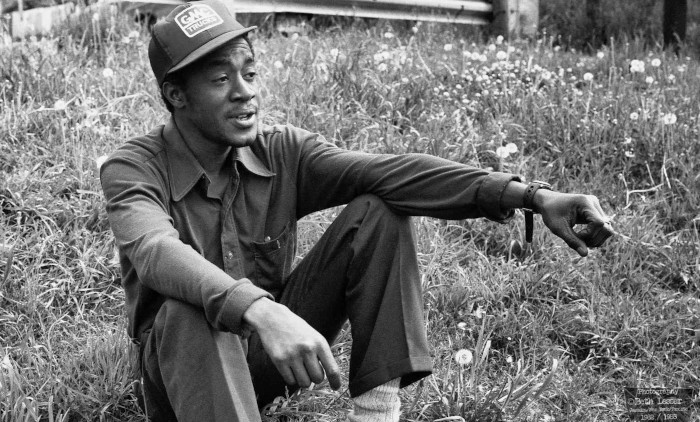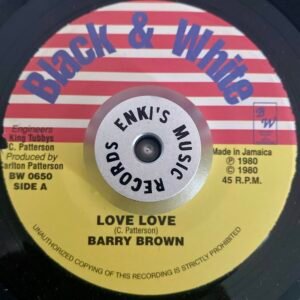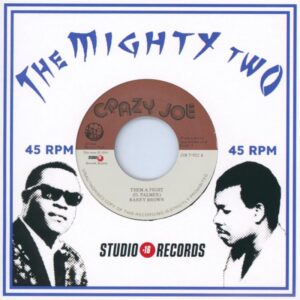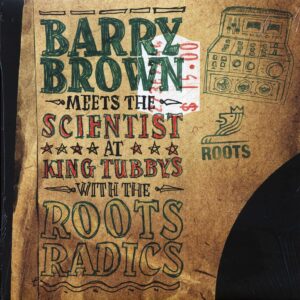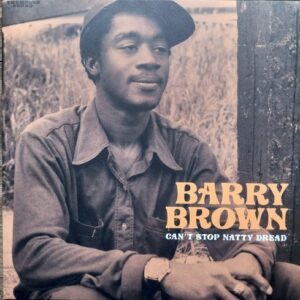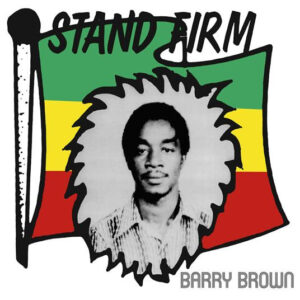In the realm of reggae, Barry Brown stands out as one of the few singers who gracefully navigated the transition from the late roots phase to the emerging dancehall style. Blessed with a distinctive high tenor, Brown’s voice was instantly recognizable, leaving a lasting impression every time it echoed through the airwaves.
His lyrics blended wit, grit, and emotion, delving into the harsh realities of Jamaican ghetto life and addressing its inhabitants’ aspirations and joyous moments. Brown frequently highlighted the magnetic allure of sound system dances in his recorded works, solidifying his place as a storyteller of the streets.
Growing up amidst western Kingston’s vibrant dancehalls and sound systems, Brown became a fixture in the scene during his youth. Mentored by high-caliber peers, he played a crucial role in steering reggae away from its roots and towards the more rugged dancehall style as the 1970s transitioned into the 80s.
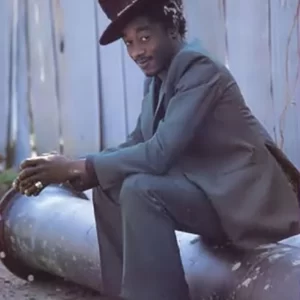
While details about Brown’s early years remain scarce, it is suggested that he was born around 1962 and raised in one of Kingston’s many slums. Surrounded by countless sound systems, music naturally became a focal point for him from a young age. With his unique voice and penchant for improvising lyrics, it was inevitable that Brown would take the stage alongside other upcoming singers, honing his craft in sound systems and nightclubs in the mid-70s.
Simultaneously, Brown showcased his vocal prowess on sound systems like Tape Tone, sharing the microphone with aspiring singers such as Barrington Levy, Tristan Palmer, Rod Taylor, and Sammy Dread. Mentored by Linval Thompson, a producer with a gritty high tenor, Brown sought to emulate his success, becoming one of the hopefuls mentored by Thompson and Sugar Minott.
In 1977, the turning point arrived when Bunny Striker Lee, the maverick record producer, brought Barry Brown into the studio, releasing “Mr. Money Man” and “Give Thanks and Praise”. Brown’s first twelve-inch, “Step it Up Youthman,” became a landmark release, establishing his reputation in Jamaica and internationally. Other hits like “Stand Firm” followed, released on labels like Striker Jackpot and Justice, with international distribution by VP.
Throughout the late 70s, Brown made waves recording for various producers, earning the moniker “Jamaican Bob Dylan” for the social and political critique in his lyrics. The high demand for Barry Brown’s music had him recording more hits like “I’m not so lucky” for Sugar Minott and the “Far East “LP for Joseph Hoo Kim. Prince Jammy, Henry Junjo Lawes, and Winston “Niney” Holmes were other producers who benefitted from his performances. Despite his success, Barry Brown’s label “Jabba Roots” saw limited success due to his lack of a substantial network and funds for promotion.
After 1984, his output became more sporadic, and he faced difficulties in later years, battling substance misuse and mental instability. Tragically, Barry Brown’s life was cut short in May 2004 when he suffered a fatal accident at Soundwave recording studio. Nevertheless, his music continues to resonate, a testament to his enduring impact on the reggae scene.

